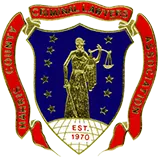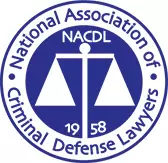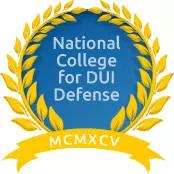A concealed handgun license (CHL) – also referred to as a license to carry (LTC) – gives you the right to carry a handgun with you – openly or concealed. However, things can get complicated if you are arrested for DWI while carrying a gun with you, even if you have a CHL.
UCW and DWI – What CHL Holders Need to Know
One of the most important things you need to know as a CHL holder is that you are not allowed to carry a handgun with you (on your person or in your vehicle) while you are intoxicated. Section 46.035 of the Texas Penal Code prohibits you from carrying a handgun while you are under the influence of alcohol, drugs, or any controlled substance.
What it means is that if you are arrested for driving while intoxicated, and if you are found in possession of a handgun (either on your person or in your vehicle), you might be charged with UCW (unlawful carry of a weapon) in addition to a DWI charge.
What Happens to Your CHL If You Are Charged With UCW and DWI?
If you are charged with DWI (which is a Class B misdemeanor) and UCW (which is a Class A misdemeanor), your CHL will be suspended temporarily by the Texas Department of Public Safety (DPS). If your charges are dropped or dismissed, your license will be reinstated with immediate effect.
If, on the other hand, you are convicted, you will lose your CHL and will remain ineligible to reapply for five years.
Can a Police Officer Search Your Vehicle While Arresting You for DWI?
Under Texas law, a police officer who makes a DWI arrest is authorized to do what they call an ‘inventory search’ – even if you do not consent to it. Whatever evidence they find – irrespective of whether it is related to your DWI case or not – can be used to support the charges against you.
If the police officer finds a handgun while searching your vehicle, they might decide to charge you with UCW in addition to DWI.
Consequences of UCW and DWI Charges in Texas
A UCW charge in Texas is treated as a Class A misdemeanor, which means – if convicted – you will have to pay a fine (up to $4,000) and spend up to one year in county jail.
A DWI charge, on the other hand, might be treated as a Class A or Class B misdemeanor or a third-degree felony – depending on whether you are a first-offender or a repeat offender.
If you are arrested on DWI charges for the first time, it will be treated as a Class B misdemeanor or a Class A Misdemeanor if your BAC is .15 or higher. Your second and third DWI charges, however, will be treated as a Class A misdemeanor and a third-degree felony respectively.
The consequences of UCW and DWI charges in Texas can be extremely serious. If convicted, you could not only be incarcerated, but also lose your LTC and – in some cases – lose your right to own a firearm. So, it’s vital to hire a skilled criminal defense lawyer who is experienced in handling UCW and DWI cases.
The Importance of Hiring an Experienced Texas UCW and DWI Defense Lawyer
The attorneys at Tyler Flood & Associates, Inc. are committed to defending the rights of Texans who are charged with DWI, UCW, and other such charges. Our attorneys are highly knowledgeable, have years of trial experience, and will aggressively fight to have your charges dropped or reduced to the best possible outcome.
If you or someone in your family is facing charges of UCW and DWI, call us today at 713.224.5529 or fill out this online contact form for a free consultation with an experienced Texas DWI and UCW attorney.









